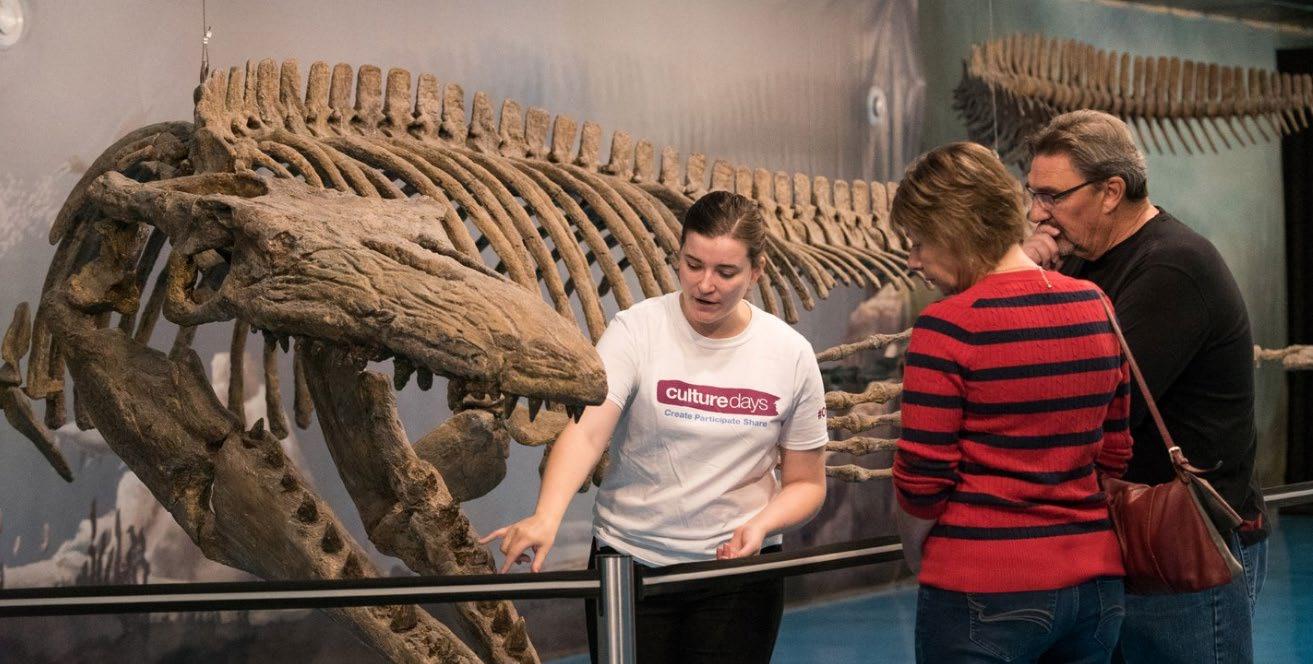

April 3, 2024




April 3, 2024

Welcome and introductions
Workforce research highlights
Discussion/ feedback
Workforce campaign Wrap up
Understand the needs and challenges in Manitoba’s tourism labour market, and public perceptions
Recommend ways to stabilize and grow the tourism workforce, with a focus on training some initial messaging approaches
Focus on frontline operators
Focus on strategic growth areas
Nov.-Dec. 2023
800 Manitobans to gauge views on tourism careers
Dec. 2023

The tourism industry is still dealing with the lasting impacts of the pandemic.
The crime situation in this province [is a priority] for employers and their employees on the frontline. Staff need to be prepared. We don’t want injuries or heroes.
Everything that we do has changed since the pandemic, and nothing for the better.
Crime and safety are big concerns for operators, especially in Winnipeg.
Significant concern about rising business costs, reduced margins and the pressure to boost wages.
Unique pressures facing the Manitoba tourism industry.
In terms of sheer numbers and turnover, the frontline workforce is the focus of stakeholders’ time and attention.
Applications are up but quality has declined.
Unreliability, particularly around shift work/seasonal work
Higher pay expectations
A “revolving door” – for restaurant serving staff, frontline hotel staff and security, especially.
Skilled/experienced/supervisory/management positions are also becoming harder to fill.
Open for months.
Difficulty finding employees with specialized skill sets, particularly technical skills, skills in curation, and senior office staff in finance and HR.
Reluctance to join the industry as an entrepreneur.
Hiring is less about training and experience and more about...
Soft “power” skills
Passion
Willingness to grow
Exceptional customer service abilities
Reliability
Hard or technical skills
We will advertise and get 50, 55 resumes, and you call those and only five people will answer the call for the interviews –– and then not show up. And in the interviews, you have to look past a lot of red flags.
Recruitment:
Keeping in touch
Starting very early hiring seasonal staff
Developing an applicant inventory
Tapping into the practicum and intern pipeline
Collaborating and partnering
Focusing on community outreach/relationships
Elevating positions that are challenging to fill
Retention:
Amping up the gratitude
Offering opportunities for advancement
Providing training and educational supports
Promoting workplace culture
Over the last decade, immigration has helped fill many gaps in the provincial tourism industry workforce.
Hospitality stakeholders said their industry could not function without TFWs, Ukrainian immigrants, etc.
Newcomers initially take positions that don’t require English skills but many move into customer-facing positions in time.
Holy Grail: A newcomer with tourism or hospitality training in their country of origin.
Need for newcomers is acute in rural or northern communities.
(Immigrants) thrive here. Their families come. They pay taxes. They already have a degree in hotel/restaurant management. They will grow with us.

The tourism industry offers many different types of job and careers
A career in tourism offers many ways to learn new skills
A career in tourism offers many ways to grow as a person
The tourism industry offers many ways to get ahead in a career
I would encourage my friends and family to pursue a career in tourism
Jobs in the tourism industry are stable Strongly agree Somewhat agree



Source: Probe Research poll for Travel Manitoba, Dec. 2023-Jan. 2024, N=800 Manitoba adults.

A couple of key shortcomings exist.
Some employers do not recruit from programs, going to nontraditional sectors to fill roles.
People with ideas for the industry may end up in business administration, HR or the arts instead.
RRC Polytech and l’Université de Saint-Boniface to reframe programs.
Limitations of practicums as workforce tools.
Co-op and placements take up a lot of staff time.
Students may be relegated to menial tasks. In-house training.
Not focused on critical, transferable skills.
Festivals are talking about shared training.
Priority areas for training:
Critical thinking skills
Attention to detail
Delegation and personnel management
Project and time management
Workplace health and safety procedures
Technical and trades skills, particularly for stakeholders in events and attractions with stages, lighting, sound, etc.

More collaboration and staff-sharing between operators
Housing partnerships
Creating an applicant inventory
Tapping into referrals
Community engagement to woo staff
Recruit/prioritize immigrants who have hospitality training and prior tourism experience
Consider ways to expand the TFW program
Refocus educational programs to retain international students
Support French-speaking newcomers to learn English
Conduct a deeper review of training and educational needs to align with what operators need now – frontline, entrepreneurs, leadership staff, etc.
Consider reworking post-secondary programs to incorporate tourism education into business programs
Sharing in-house training
Upgrade the student experience through:
o Educational partnerships with other regions
o Classroom role-modelling, highlight Manitoba attractions, opportunities for growth, bigger picture
Lifestyle is so important to this next generation. People travel from around the world to hunt and fish here. You can live that. Your job can be doing what people travel from around the world to do.

First: What hit the mark in the report? What did we miss?
Second: Help us augment and prioritize the report’s recommendations and determine what to do next.


